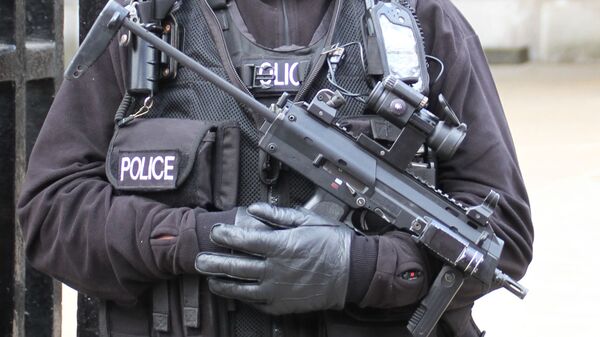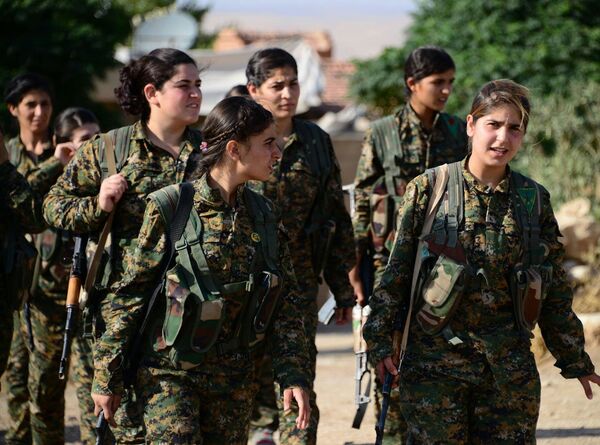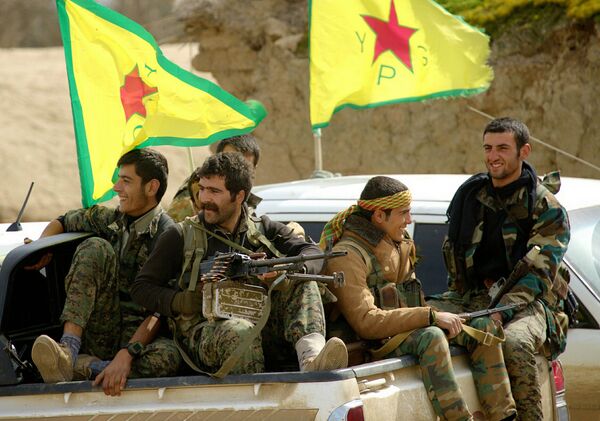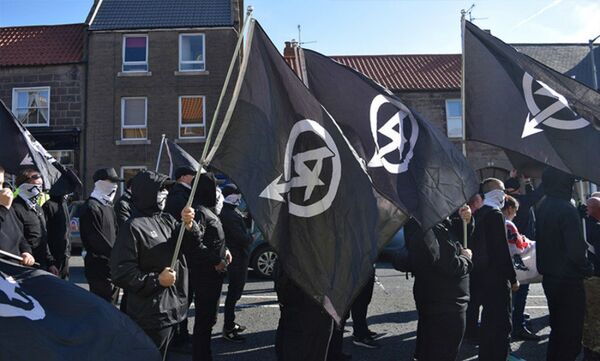Dr David Lowe is a senior research fellow at Leeds Beckett University Law School and is a retired police officer. He researches terrorism and security, criminal law and policing. He is widely published in these areas and has been involved in assisting UK government departments in this field, as well as acting as an expert witness where has assisted the Metropolitan Police’s counter-terrorism unit SO15 and the Irish police, An Garda Siochana.
Dr Lowe says that while the UK continues to face a myriad of terrorist threats much has been learned since the terror attacks in Manchester in 2017 and in London Bridge in 2019, to make Britain a safer place.
Sputnik: 22 May is the anniversary of the 2017 Manchester Arena Bombings. What are the main lessons that should have been learned from terror attacks like the Manchester Bombing?
Dr David Lowe: There have been a number of lessons that came out of the Manchester Arena bombing, especially those that came of the Kerslake Report following the bombing. That includes the emergency services communications being more compatible and working closer together, for example it was original policy that paramedics could not enter a scene until the police had totally eliminated the terrorist risk; but it was found that this could take up to an hour [and] victims were dying due to blood loss from injuries [they] sustained.
Now, and as been seen in subsequent practical exercises, there are specially trained paramedic teams that now enter the scene to treat injured victims while the police are eliminating the risk.
Another [lesson is] for local authorities and public venues to take measures to eliminate the risk of an attack such as having barriers at public events to prevent a vehicle attack and to have first aid/defibrillators available at venues for first aid to be given to inured persons.
As always following an attack the police, in particular the counter-terrorism officers and security service, always look at how they can enhance co-operation.
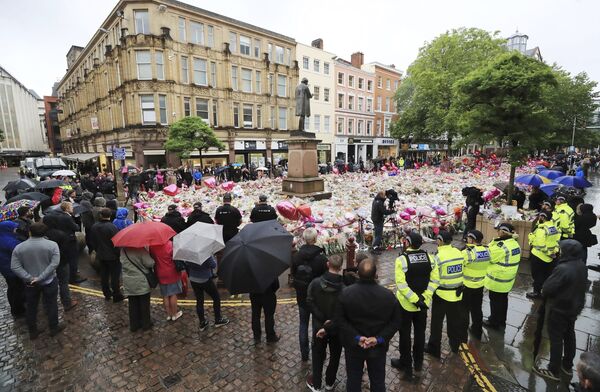
Sputnik: Do you think the UK political class and security apparatus have learned these lessons?
Dr David Lowe:Yes, already we have seen the implementation of recommended best practice and new policy as covered in my response above
Sputnik: Has the British state been implementing the policies necessary to either prevent or mitigate against future attacks?
Dr David Lowe: Yes, following the Fishmonger’s Hall/London Bridge attack in November 2019 and the Streatham High Street attack in January 2020 the UK government introduced the Terrorist Offenders (Restriction of Early Release) Act 2020, as it was revealed that in both attacks the offenders had been convicted of terrorist offences and served a prion sentence.
Due to changes to the Criminal Justice Act 2003 introduced in 2011 they were automatically released after serving half of their sentence, with no parole board decision. The 2020 Act stops the automatic release of terrorist prisoners and re-introduces a specialist parole board to deal with terrorist prisoners and they will only be released if they pose no risk to society.
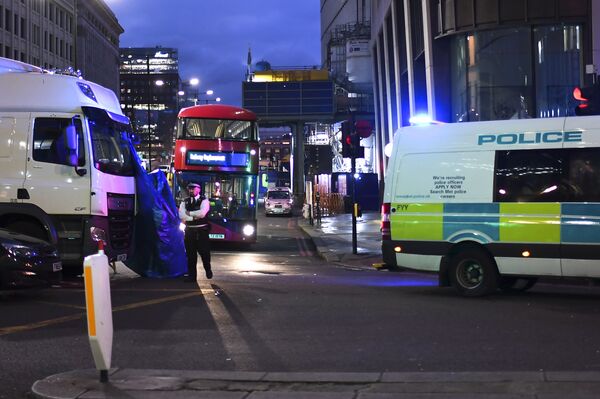
The UK government is introducing the Counter-Terrorism and Sentencing Bill (the introduction has been delayed due to government time being spent on the current COVID-19 pandemic) that will amend the current TPIM [Terrorism Prevention and Investigation Measures] orders (that are issued by the courts). A TPIM is a form of control of persons suspected of terrorist activity, but where there is insufficient evidence of specific offences being committed by them. It places certain restrictions on their day-to-day activity.
The amendments include the removal of the two-year limit such an order can be in place, thereby making them potentially indefinite if the court sees fit to do so. It will introduce tighter and more stringent control on the individual, similar to that we saw with Control Orders introduced in 2005 that preceded TPIMs. No doubt the bill will contain proposals to amend current powers counter-terrorism agency officers have to meet the security risks we face today.
Sputnik: A Top Secret 2003 Joint Intelligence Committee report assessed that the invasion of Iraq would result in an increase in terrorist attacks, including against the UK.
To what extent, if at all, do you think aspects of British foreign policy may fuel some of the attacks that we see in the UK?
Dr David Lowe: I think this view is exaggerated and inaccurate. There is no doubt that UK assisting its allies with the invasions of both Afghanistan and Iraq has had some part in fuelling terrorism and recruitment to Islamist inspired groups like Daesh* and al-Qaeda* and those groups have used Western state involvement in these countries and other parts of the Middle East as propaganda tools to justify their cause and to recruit individuals to their cause.
In relation to groups like Daesh we also saw Muslim states like Jordan involved in fighting them and Muslim Kurdish forces like the YPG in Syria and the Peshmerga in Iraq fighting Daesh. Also Daesh carried out terrorist attacks against Shia Muslims who they see as heretics, and have in the past planted bombs at the two holiest Islamic site, Mecca and Medina (mainly because Daesh see the Saudi government a heretics), so it is not solely down to a polarised religious conflict between predominantly Christian states like the UK versus Muslim states with this group.
What has to be remembered is that the UK faces a terrorist threat on three fronts, not just the Islamist threat but the one posed by the extreme far-right (neo-Nazis) and in the North of Ireland that from dissident republican and loyalist paramilitaries.
In relation to the neo-Nazi groups the UK has proscribed five groups, National Action, Scottish Dawn, NS 131, System Resistance Network and the Sonnenkreig Division as terrorist organisations with the UK being the first western state to proscribe the groups as terrorist organisations. None of these groups ideology and cause is related to UK foreign policy. (Canada followed the UK in June last year by proscribing the group Blood & Honour and Combat 18 and Germany did the same in January this year with the group Combat 18 Deutschland).
Although the number of neo-Nazi inspired attacks have been lower that those carried out Islamist inspired terrorists, there have been many arrests and convictions of neo-Nazi’s in the UK since these groups were proscribed.
In relation to the North of Ireland, even post the 1998 Good Friday Agreement we are still seeing paramilitary violence. For example with dissident republican groups like the New IRA and Continuity IRA, where the new IRA murder of journalist Lyra McKee in Derry at Easter 2019 attracted international media attention. Continuity IRA planted explosives, in January this year, on a ferry between Belfast and Britain while loyalist groups like the UDA and UVF have been carrying out murders and punishment beatings.
Again UK foreign policy is not the rationale behind these terrorist attack, it is still the issue of British presence in the six northern counties of Ireland that is behind this violence. It should not be overlooked that while in Britain the terrorist threat is substantial (an attack is likely) in the North of Ireland the terrorist threat is severe (and attack is highly likely) and this is due not to the Islamist threat, but that from the dissident republican and loyalist paramilitaries.
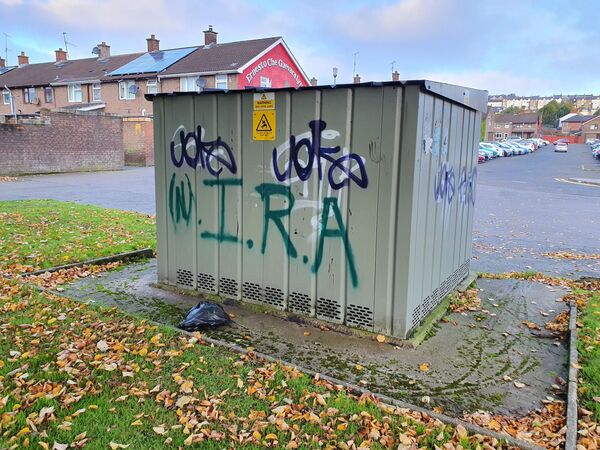
Sputnik: How would you assess the state of Britain’s security today and what, if anything, needs to be done to improve it?
Dr David Lowe: The UK has introduced some of the strictest anti-terrorism legislation since 2000 giving counter-terrorism police and the security services wide statutory preventative powers that, along with the Investigatory Powers Act 2016, grants authorities for sate agencies to carry out surveillance on many forms of electronic communications, allows them a greater ability to take action of suspects and targets while they are still planning and preparing terrorist acts so as to prevent attacks happening.
The main aim of counter-terrorism is to prevent attacks from happening and not to detect such acts, as that means an attack has happened and people will have been killed or seriously injured. As covered above the UK will be introducing new legislation to ensure UK agencies can continue to be a effective as possible in preventing attacks.
Key to assisting UK agencies in countering terrorism in the UK is the Joint Terrorism Analysis Centre (JTAC). Although JTAC is based at MI5’s HQ at Thames House they are a group that is set up to analyse all the information and intelligence received and allow for decisions to be taken in handing out tasks to the most appropriate agency as well as assisting in a muti-agency approach. JTAC’s analysis has assisted other states by passing intelligence of potential inter-state operations by terrorists.
Local authorities and public departments have also improved on their prevention by designing out potential terrorist attacks.
As best as can be the UK has taken many measures as possible to prevent terrorist attacks, but as the Provisional IRA operative responsible for the 1984 Brighton Hotel bombing that nearly killed the UK Prime Minister and members of her cabinet said, 'the state have to be lucky 100% of the time, the terrorist just once'.
That still rings true, not all attacks can be stopped, but the chance of it happening is still remote and that is due in part to the work carried out in departments responsible for preventing terrorism.
* Terrorist groups banned in Russia and many other countries

